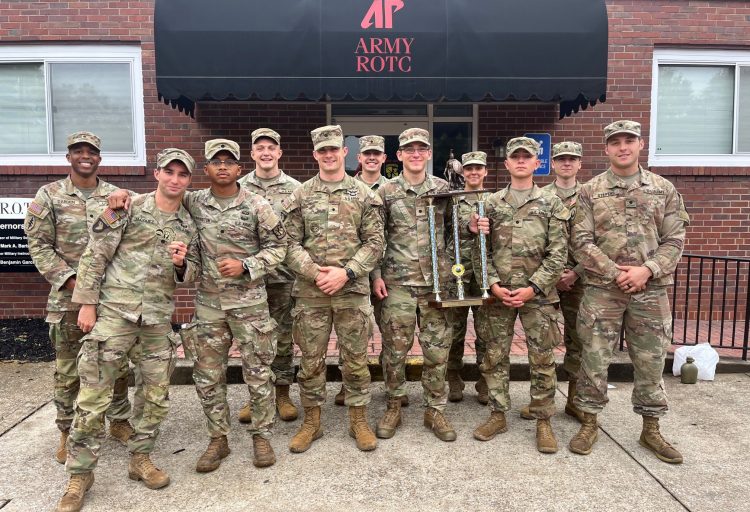ASSOCIATED PRESS – Rick Robinson was settling into his new job as the baseball coach at Tennessee-Martin, moving some things around his office when he came across a few articles that had been written about the previous year’s team.
He made a somewhat startling discovery: His best returning pitcher had just one hand.
Now, Carter Smith is turning into one of the best pitchers in the Ohio Valley Conference. The 6-foot-2 left-handed senior has been solid as a weekend starter for the Skyhawks, leading the conference with a 2.03 ERA in 31 innings while striking out 29.
Most gratifying for Smith is he’s being looked at as a good college pitcher instead of a curiosity.
“It’s great that it’s a good story, but what I really wanted is to have success at this level,” Smith said. “It’s just working hard, staying persistent and being willing to put the time in to get better.”
The 22-year-old from St. Louis was born without a right hand, but that didn’t stop him from grabbing a ball and glove as a youngster to play catch with his five siblings. He learned how to throw and catch through trial and error, slowly perfecting the technique that would allow him to have success at the Division I level.
When he pitches, he throws with his left hand while balancing the glove on right forearm. After he lets go of a pitch he quickly slips his left hand into the glove so that he can field a potential line drive, bunt or hard grounder. If he catches the ball, he pulls the glove off with his right arm, lets the ball fall into his left hand and gets in position to throw again.
It sounds difficult, but Robinson said Smith does it so seamlessly that it’s barely noticeable.
“Honestly, I’d rather have him on the mound fielding a bunt in pressure situations than anyone else,” Robinson said. “He’s so smooth with it.”
Smith’s system is similar to that of former Major League Baseball pitcher Jim Abbott, who was also born without a right hand. He played 10 seasons in the big leagues, winning 87 games and even throwing a no-hitter.
Smith said his dad took him to Busch Stadium to watch Abbott pitch in the 1990s and it helped reinforce that having only one hand didn’t have to stop him from playing baseball.
Abbott, now 47 and living in California, said he was excited to learn about Smith’s success on the mound. He also can relate to one of Smith’s biggest goals: Wanting to be known as a good pitcher instead of the guy who plays with one hand.
“When you grow up missing a hand, you know what it’s like to want to fit in and want to be a part of something,” Abbott said. “Being a good teammate means not always wanting to call attention to yourself, so I know the battle he’s going through. I’m proud that he feels that way.”
Smith said he’s tried to never let one hand affect what he can or can’t do in athletics. He even played basketball as a freshman and sophomore in high school before deciding to concentrate on baseball.
There have been a few adjustments in college — like learning to hide the ball a little better during his windup and delivery so batters can’t pick up the pitch from his grip — but for the most part his system has stayed the same since he was 6 years old.
He said teams have tried to lay down a few early bunts to see if he can field his position, but after a couple outs, they try a different strategy.
“It’s never bothered me,” Smith said. “I just look at it as a free out. ”
Smith was voted a team captain during the offseason and has validated his teammates’ decision with great performances.
Robinson said Smith keeps opposing batters off-balance despite a fastball that tops out between 86 to 88 miles per hour. Instead of pure velocity, he relies on good command, a slider and a deceptive change-up.
“Not only is he a really good pitcher for us, but he brings the love of baseball to the field every day,” Robinson said. “We have yet to find anything he can’t do. When you watch him handle himself on the mound, it’s pretty incredible.”
Like most playing Division I college baseball, Smith hopes his career can continue at the professional level next year. But if it doesn’t, he’s well prepared. He’s majoring in sport management and has made the OVC Commissioner’s Honor Roll the past three seasons.
“I’d love to stay on the field playing, but maybe someday I’d like to get into the front office,” Smith said. “I definitely want to stay around the game no matter what happens.”





